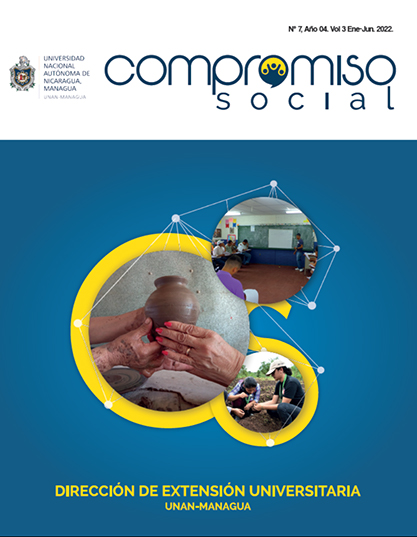Dialogue of Knowledge, challenges and perspectives from university extension. A view from Latin American experts
Keywords:
Dialogue of Knowledge, Ancestral Knowledge And, Practices, Identity, Good Living, InterculturalityAbstract
This article contains the opinions and experiences of the reflective processes that have constituted the vast experience of six Latin American extensionists, who, through in-depth interviews conducted within the framework of common interest of the countries that make up the Central American Extension Network. Among the countries that decided to provide their contributions are Brazil, Argentina, Uruguay and Chile; and the experience of Cuba as a caribbean country. Therefore, it has been the task of the universities to focus and resize their practices and methodologies in direct work in the territory, which contribute to recover those values, principles, knowledge, traditional knowledge, religion, cosmology, music, dance, productive technologies, natural medicine, etc. so that they are valued and respected.
Latin American countries are plurinational and multiethnic States, most of which have included in their Political Constitution the recognition and promotion of ancestral knowledge and practices, which contribute to the strengthening and development of local economies.
In this process, it is necessary to incorporate the criterion where knowledge converges and new knowledge is complemented and articulated through the Dialogue of Knowledge, between ancestral knowledge and modern academic knowledge, so that what is sought is to find convergent points, where it is possible to recover the most positive of the knowledge that gives way to the revitalization of social and productive processes in each neighborhood, village and community.
Downloads
Downloads
Published
How to Cite
Issue
Section
License
Copyright (c) 2022 Universidad Nacional Autónoma de Nicaragua, Managua (UNAN-Managua)

This work is licensed under a Creative Commons Attribution-NonCommercial-ShareAlike 4.0 International License.




